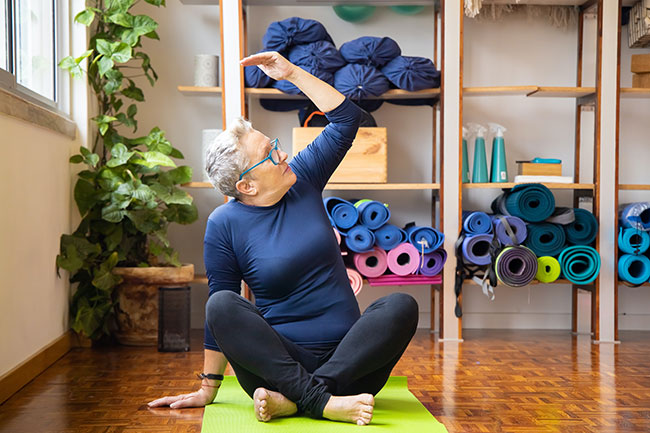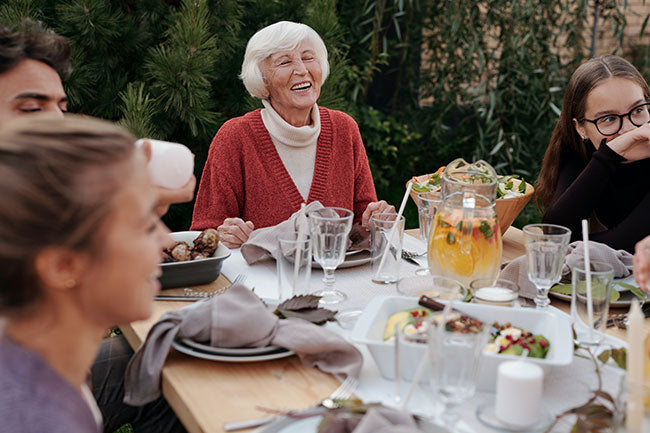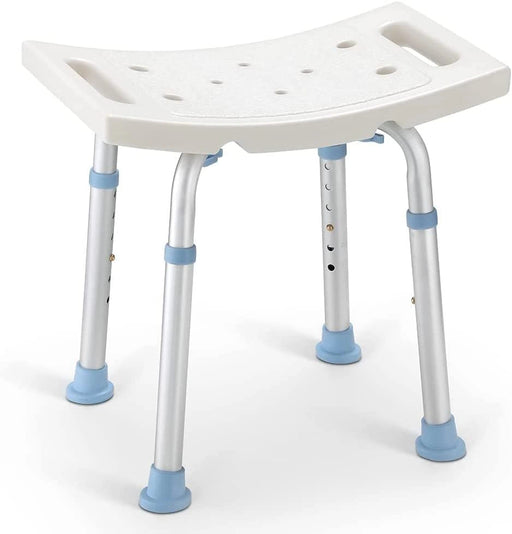Tips for Older Adults to Boost Mental Health
Memory impairments, cognitive deterioration, and the rising pandemic of loneliness make elderly people particularly susceptible to mental health disorders.
According to the findings of research conducted by the Centers for Disease Control (CDC) on the subject of mental health in individuals aged 55 and over, it is believed that twenty percent of senior citizens struggle with some kind of mental health problem.
Stress, major cognitive decline, and mood disorders including depression are among the most frequent ailments. The fact that mental illness can be treated is a piece of good news for seniors and their families.
Activities and services to maintain elderly individuals active and in excellent mental health are accessible in addition to professional interventions such as prescription medication or psychotherapy. The following is the guidance aiming at enhancing and preserving mental health.
1. Fuel the Mind
To prevent cognitive impairment as we become older and keep our minds as bright as we were younger, our brains require stimulation in the same way that our bodies require physical exercise to maintain good health. Brain training may assist improve a variety of cognitive capabilities, including information processing, organizing abilities, response time, strategic planning, and short attention span.
Brain health may be improved by participating in any activity that challenges one's mental abilities and forces one to strive toward a solution. For example, reading has been shown to improve memory performance, lower stress levels, and positively affect sleep, according to a number of studies. The impacts of anxiety and depression may be managed and alleviated with the aid of journal writing. Besides, picking up a new language engages parts of the brain that are often impacted by aging. It might boost one's self-confidence and even lead to increasing socializing with people who either already know the language or are studying it.

2. Exercise Regularl
Exercise and other forms of physical movement, like going for rehabilitation walks with rollators, attending yoga courses, or participating in dance lessons, have been shown to have positive effects on the mind by increasing confidence and lowering the chance of falling. Maintaining an energetic lifestyle and obtaining sufficient exercise are just as essential to the mental health of elderly people as they were younger.
Apart from the physical advantages, exercise may also allow elderly people to better manage their stress, depression, and anxiety, all of which could be just as destructive to their well-being as physical illnesses and disabilities. It is thus essential for seniors to engage in regular physical activity in order to keep their mental health in good condition.

3. Maintain Contact With Friends
Keeping in contact with the crucial individuals in their life may be a helpful way for elderly folks to fight off feelings of melancholy and isolation, both of which could contribute to the development of depression as well as mental and physical deterioration. People's ability to keep in touch with their longtime friends might be hindered by factors such as time and distance, which is particularly true as they become older.
Luckily, new and old friends are able to stay in contact thanks to the computer and the cellphone. Keeping in contact may be accomplished in a variety of ways, including familiarizing oneself with the intricacies of various social media platforms, and using video calling applications such as FaceTime, Skype, and so on. Writing letters or establishing a scheduled timetable for a decent phone call are two more ways for older adults to keep things straightforward and their minds manageable.

4. Have a Pet
There are major mental benefits that might result from owning a pet and being responsible for its care. It helps elderly people stay active and occupied, in addition to providing them with joy and company. The responsibility of looking after a pet is constant, and it may offer older adults the day-to-day routine that they so urgently need. When elderly folks are aware that they are responsible for the feeding and cleaning of their pets, they would feel more compelled to adhere to an everyday routine that is conducive to good health. They will also find that their lives have a lot more purpose for them when they are helping to take care of another live creature.

5. Get a Hobby
Continuing to be engaged after retirement is something that should not be neglected. All of us have a unique wish list that includes goals and pursuits, but occasionally those thoughts get placed on the back burner because life may become hectic., It is the ideal moment for older adults to pull out their "bucket list" and explore lifetime ambitions, such as planting, knitting, sketching, or even French cookery. A feeling of accomplishment may build up in a person when they have things to look forward to on a daily basis. Elderly individuals will have a greater sense of fulfillment if they take up new activities rather than sitting in front of the television for the whole day. The sense of pleasure that you get from witnessing the outcome of your creative efforts is something you would miss experiencing once you retire.
6. Have Good Sleep and Eat Well
Getting the recommended amount of sleep and maintaining a healthy diet is always important for one's mental health, regardless of age. Because of their increased susceptibility to illness, older adults are especially at risk for developing mental health problems.
It is strongly recommended that senior citizens engage in healthy behaviors, and getting 7–9 hours of sleep each night is an essential component of this. Consumption of sweet meals and foods high in refined carbs should be avoided as much as possible. Furthermore, older adults should focus on eating more vegetables, fruits with dietary fibers, and meals made with whole grains if they want to stay more energized and maintain both their physical and mental wellness.
7. Volunteering
A feeling of purpose may be gained via volunteer work. Retirement often brings about significant shifts in the routines which may cause older people to feel as if they have lost their purpose in life. They would have a greater sense of connection to the wider world as a result of volunteering opportunities. They would also have the chance to contribute in some way to society once they reach their senior years. And participation in volunteer activity may even have the same therapeutic effect on certain elderly people as taking medicine. According to the findings of recent research, participating in organized volunteer activities may be an effective treatment for depressive symptoms in older adults who are prone to experiencing them.
Conclusion, It is of the utmost importance for elderly people to pay attention to their mental health; without a strong and steady mind, they are more likely to suffer from a variety of different physical disorders and illnesses. Because older adults are considered to be among the most susceptible populations when it comes to issues relating to mental health, the significance of maintaining a healthy lifestyle cannot be stressed enough. Fortunately, elderly people may enhance their mental health and manage to live productive lives if they follow the advice that we have provided in this article and put it into practice.
Recommend Products
-
 Sale
Sale
Standard - 300LBS Capacity Shower Stool
Original price $51.99From Original price $29.99Original price $51.99Current price $29.99From $29.99Current price $29.99OasisSpace Medical Square Shower Stool for Bathtub OasisSpace Square Shower Stool for Bathtub is approved as the highest standard(FDA) for medical...
View full detailsSaleOriginal price $51.99From Original price $29.99Original price $51.99Current price $29.99From $29.99Current price $29.99


